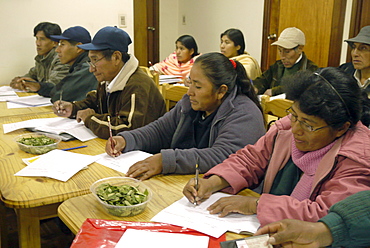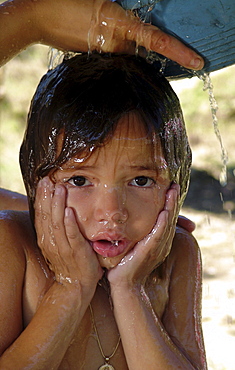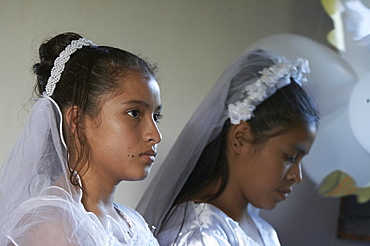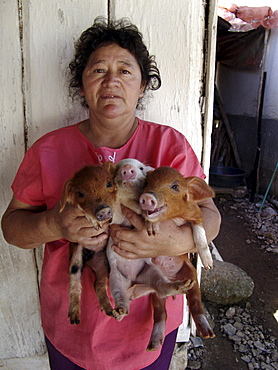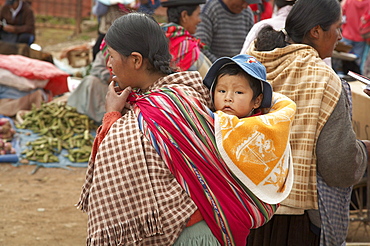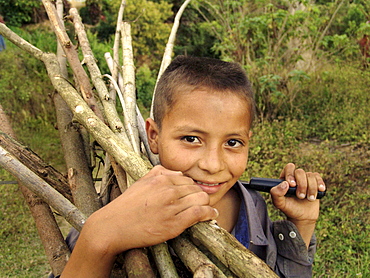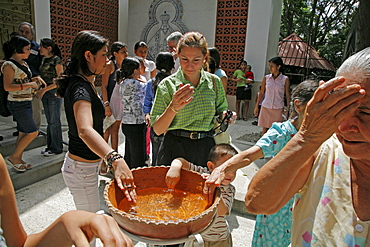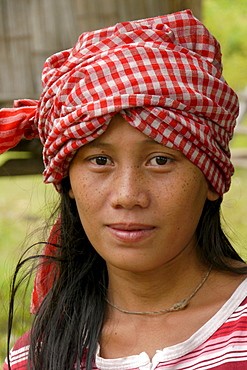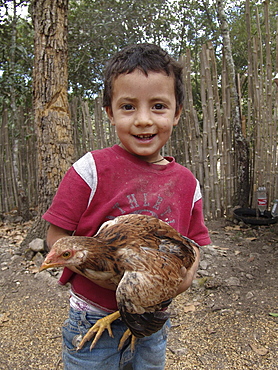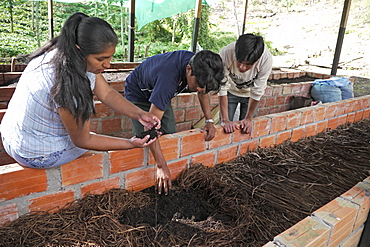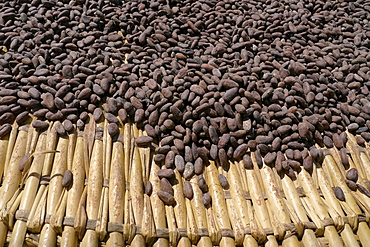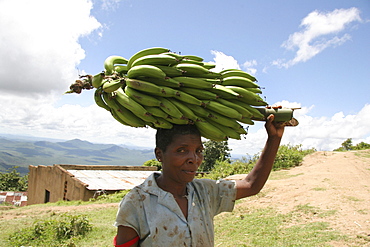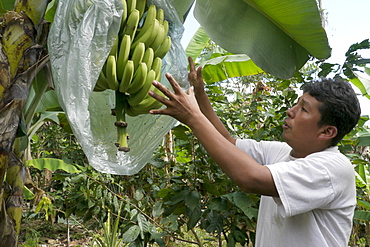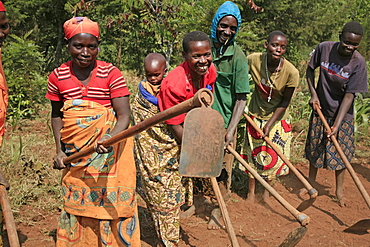Recent searches
Loading...
1194-1821 - Cambodia a rice bank in daung village, kampot province.
1194-957 - Macedonia (the former yugoslav republic of macedonia, fyrm) frescoes in the orthodox church of the monastery of saint naum. Lake ohrid
1194-2068 - Indonesia laboratory testing drinking water. Photograph taken in meulaboh, aceh province -december 2006, 2 years after tsunami of december 26th 2004 devastated much of coastal region. Taken to illustrate reconstruction work projects of (catholic relief services) of sponsored photo tour. terchnician : every house well gets tested. Unicef originally helped up to support other ngos in area, helps staff salaries provides us with equipment. coordinates activities with local government. water in local wells is quite contaminated, especially with arsenic, as well as nitrates, nitrites, iron, manganese fluoride. water became salinated after tsunami. We test here both water from shallow deep wells
1194-44 - BOLIVIA FUNDAWI: training a group at the FUNDAWI office in La Paz. Coca leaves on the table for chewing
1194-296 - Agriculture, ethiopia. Ghiraltar, tigray, farmers winnowing wheat,
1194-2485 - South sudan saint josephs feast day (may 1st) being celebrated by catholic community in yei. procession
1194-2008 - Russia women wearing traditional estonian dress at pechersky caves monastery, pskov district, founded on august 28th 1473 by saint jonah sheshnik
1194-1506 - Russia old woman of vazhini st. Petersburg district
1194-2267 - India. In the footsteps of saint thomas: visiting the eight churches founded by the apostle in kerala after he arrived in 52 ad. An icon of saint thomas
1194-735 - Honduras girl taking a bath, agua caliente, copan
1194-288 - Religion, ethiopia. Kesegedez walde giogis, head priest of saint mary of zion churches. He is standing in front of the new church. Axum
1194-1008 - Russia - soup kitchen run by mother teresas sisters of charity for the poor and elderly, yuzhno sakhalinsk, sakhalin island, russian far east
1194-849 - Macedonia (the former yugoslav republic of macedonia, fyrm) interior of saint clement church, ohrid
1194-2251 - India. Mealtime at the mary matha bala bhavan, a girls orphanage run by syro-malabar catholic missionary sisters of mary immaculate (msmi), chamal village, thamarassery diocese, khozikode, kerala. 2007
1194-955 - Macedonia (the former yugoslav republic of macedonia, fyrm) orthodox church of the monastery of saint naum. Lake ohrid
1194-1089 - Thailand nasiri village of the lahu tribe, chiang mai
1194-2399 - Peru. Woman with eagle, yanque, colca canyon
1194-2536 - Vietnam anti trafficking project at tra on in vinh long province in the mekong delta region of vietnam. many young people have succumbed to bein. for marriage or work in neighboring countries, and this project addresses the problem. in this image the vice-principal of tra on high school, ngoc bich, talks to a group of 12th graders about the problem
1194-2607 - Guatemala catholic first communion and mass at remate, el peten. girls during mass
1194-601 - Thailand infants sleeping at day care center in chiang dao village, near chiang mai
1194-925 - Macedonia (the former yugoslav republic of macedonia, fyrm) saint clement of ohrid. 13th century frescoes inside the orthodox church of saint clement, ohrid
1194-1915 - Family nepali immigrant family kalimpong, indi
1194-1623 - Thailand nurse giving a school an immunisation, chiang mai
1194-504 - Ethiopia the maryam feast, feast of mary, at axum. His holiness abuna paulos walking down from the steps to the great stela
1194-806 - Cambodia couple sleeping in a mosquito net, toul village, kampong cham
1194-2559 - Vietnam unexploded ordnance, both bombs dropped by americans and land mines laid by both sides during the vietnam war, remain a big problem in central vietnam for children and adults alike. in response, crs has implemented a mine risk education program in quang tri province near the former khe sanh battlefield. this image shows the yard of a scrap metal merchant in tan hop. 80% of the steel comes from bombs, either exploded or unexploded. collecting and selling scarp metal has for long been an income for many poor people in the area
1194-52 - BOLIVIA Shamanist ceremony by Calixto Quispe performed at the Mission Institute of Cochabamba
1194-749 - Honduras woman with piglets. These were provided by a project to raise nutrition levels in the rural areas. Marcala
1194-2141 - Philippines scavengers at work on garbage tip at bagong silangan, quezon city, manila
1194-2218 - Australia. Young girl at home with mother, aborigine community of , or beswick, arnemland, northern territory. 2007
1194-2217 - Australia older aborigine man, aborigine community of , or beswick, arnemland, northern territory
1194-913 - Macedonia (the former yugoslav republic of macedonia, fyrm) main entrance of the orthodox church of saint clement, ohrid
1194-1172 - India - health st. Josephs hospice for cancer patients kottayam, kerala
1194-2397 - Peru. Children in traditional costume dancing at yanque, colca canyon
1194-2230 - Bolivia. Aymara mother and child at a street market in el alto
1194-972 - Mongolia buddhist monks at gandan monastery, ulaan baatur
1194-2490 - Uganda close-up of cassava stems which will be planted and soon sprout. kayunga district
1194-109 - HONG KONG Anti-drug posters at a school in Hong Kong. photo by Sean Sprague
1194-2501 - Uganda the kyayaaye roman catholic primary school in kayunga district. say no to sex sign
1194-1063 - Thailand our school muslim school for burmese refugees, mae sot
1194-2109 - Myanmar musicians at catholic wedding of tribal kachins at myitkyina, a largely kachin community in north burma near chinese border
1194-480 - Ethiopia festivities in front of saint mary of zion church, axum
1194-1182 - India - water: woman filling cooking pot with water, tamil nadu
1194-360 - Colombia mother relating to her children at a day care and child stimulation center run by dni (international defence of children) in barrancabermeja
1194-1057 - Thailand muslim school for burmese refugees, mae sot
1194-730 - Honduras boy collecting firewood banadero, near danli
1194-336 - Portrait, brazil. Boy of castainho quilombo, pernambuco. Quilombos were set up by escaped african slaves hundreds of years ago
1194-2206 - Australia. Woman of aborige community of , or beswick, arnemland, northern territory. 2007
1194-1945 - Honduras holy water font in front of catholic church. slum barrio of chamelecon, pedro sula
1194-27 - CAMBODIA Lib Kham (23) Ban Bung village, Stung Treng district
1194-189 - Dance performance at bugando hospital medical school, tanzania. Mwanza. - opening ceremony
1194-394 - Colombia city bus in the slum development at altos de cazuca, bogota
1194-1792 - Bangladesh fish caught at a fish hatchery employing scientific methods at haluaghat, mymensingh region
1194-69 - BOLIVIA Plant for processing medicinal and aromatic herbs, Chizchipani, Caranavi. The project of FUNDAWI. Local farmers visiting the demonstration plot and using the wormery composter
1194-723 - Guatemala mayan woman weaving with a back strap loom, tsantepey
1194-37 - BOLIVIA ECOTOPS projects in Alto Beni. Sandra Gonzales and friend drying cacao beans in the sun, Remolinos
1194-1222 - India - religion - christian elderly cmc catholic sister at koonamavu convent, kerala
1194-509 - Ethiopia the maryam feast, feast of mary, at axum. The old church of saint mary of zion
1194-460 - Ethiopia boys chanting geez prayers. Mihur eyesus orthodox monastery, gurage
1194-1810 - Bangladesh farmer of koch tribal minority preparing a field for planting cassava, nalitabari, mymensingh region
1194-706 - Tanzanian woman carrying bananas, kighare, same, in the north-east near kilimanjaro
1194-2219 - Australia. Older aborigine woman who jhas just caught a catfish, aborigine community of , or beswick, arnemland, northern territory. 2007
1194-2388 - Kenya. Young masai man, masai village within the amboseli national park
1194-900 - Macedonia (the former yugoslav republic of macedonia, fyrm) girls of struga
1194-387 - Colombia children of of altos de cazuca, bogota
1194-1053 - Thailand burmese muslim refugee school at mae sot
1194-2628 - Burundi boy carrying sugar cane, gitera.
1194-2073 - Indonesia villagers rice, batak house shaped grave in background, lake toba, sumatra
1194-1815 - Bangladesh market at haluaghat, mymensingh region
1194-178 - THAILAND Chiang Mai.Tourists getting foot and leg massage in the street. Photo by Sean Sprague
1194-516 - Ethiopia boys chanting geez prayers. Mihur eyesus orthodox monastery, gurage
1194-1146 - Zambia rita hamusokwe (58), farmer of chikwela village, chongwe, cultivating her field
1194-1074 - Thailand burmese refugee children at school, mae sot
1194-1248 - Kenya catholic lay missionaries orphan. Korogocha, nairobi
1194-43 - BOLIVIA ECOTOPS projects in Alto Beni. ECOTOPS technician Fortunato Velasquez Marca examining bananas at a farm in Communidad Los Palmeroa
1194-2541 - Vietnam hoa binh primary school in vinh long province
1194-1524 - Tibet (china) chinese convoy entering lhasa
1194-5 - CAMBODIA 8-year-old Khoeun Sovan in bed under mosquito net, Mean Caeay slum, Phnom Penh
1194-273 - Agricultural landscape, ethiopia. Wenchi lake and extinct volcanic crater, ambo. Very steep hillside cultivated without use of terraces
1194-92 - CAMBODIA HIV+ couple making handicrafts. Toul Sambo village is a resettlement area outside of Phnom Penh. Set in rural tranquility surrounded by paddy fields, it is a peaceful place for its residents. A Caritas Cambodia project, it has two focus groups who live there. One group is largely HIV+ and used to reside in a Phnom Penh slum called Borey Kila, until they were evicted by the government who wanted to develop the land for offices and shopping malls. The other group consists of those made homeless when a river's bank subsided in their village, destroying their homes. At the home of Kea Nimal and Kem Sokhorn, both HIV+. They are very industrious working at home making paper bags and ornaments, some with recyclable materials. They can earn $12-$15 per 5-day working week, and live quite comfortably in their attractive home with TV, motor-cycle and other conveniences. They say they are much better off than in the crowded and unhealth slum of Borey Kila in Phnom Penh where they used to live. They get regular orders for the handicrafts they make. They stay healthy by taking ARVs, which are supplied free of charge by the Hope Organization. PHOTO by Sean Sprague
1194-627 - Thailand hiv+ patients in an aids hospice at a buddhist temple in lopburi, being cared for by father mike bassano, a maryknoll priest dedicating his life to serve the sick and needy
1194-2142 - Philippines boy wearing a headlamp. He is getting ready to scavenge on the dump. Shantytown dwelling near garbage tip at bagong silangan, quezon city, manila
1194-2625 - Burundi agakura, a youth agricultural project in gitera. Group of farmers who are associated with agakura doing communal work on farmland.
1194-1786 - Bangladesh family buying fish fingedrlings for stocking the pond on the farm, at a hatchery in haluaghat, mymensingh region. They are members of the garo tribal minority. Adding oxygen to the plastic bag of fish so they will survive longer in transit.
1194-2648 - Burundi local drum and dance group, gitera.
1194-2482 - South sudan student of lutaya primary school walking to school with her books and stool to sit on as there is usually no furniture in the classrooms. yei



